#jobs are modern slavery
Explore tagged Tumblr posts
Text

Corporations don't care
Government always lies
Rat Race will destroy you
Getting a job is a waste of time
Billionaires are the death of us
The school system is rigged and outdated
Democrats and Republicans are wolves in sheep's clothing
We are nothing more than expendable slaves to the rich and powerful
There is no middle class
War is a waste of time and life
But in the end, is there any hope of changing any of this at all for a better future than this worthless excuse of nations on earth or is it too late.
We can change this world without the endless lies and false promises.
#dark reality#american dream is a lie#american nightmare#america is lying to you#america is a hellscape#rat race is pointless#government lies#democrats are useless#republicans are useless#the school system is rigged#capitalism is a scam#capitalism is hell#capitalism is evil#billionaires don't care about anyone#billionaires are braindead#billionaires need to pay taxes#billionaires are useless#billionaires are not your friends#change the world#world without corruption#restore the middle class#corporations don't care about you#corporate greed#the school system is outdated#wars are pointless#war will end#the future is in our hands not the government to control and manipulate#getting a dream job is a pipe dream#jobs are modern slavery#nowhere is safe
8 notes
·
View notes
Quote
Афроамериканцы* хотя бы знали, что были рабами, а вы даже не подозреваете.
Doug Stanhope

* цитата изменена во избежание расистских настроений
2 notes
·
View notes
Text
.
2 notes
·
View notes
Text
.....
#tag rant#I knew the chances of actually stopping the execution were low#but its still so devastating#and frustrating#I hate that we live in a world where the death penalty is still so common and even popular!#its fucked up#so much research has shown that the death penalty doesn't reduce any type of crime#and honestly even if it did#I'd still be against it#like our modern day policing practices#and the extremely underpaid prison labor that has none of the protections that a normal job would#its just a way to continue slavery and jim crow into the modern era#and its absolutely sickening#its also sickening just how little oversight our judicial system has#but Marcellus Williams should have never been put on death row to begin with#and now he's going to be executed today#despite clear evidence of innocence and thousands of people advocating for him#because the only people with the power to stop it#are happy to see an innocent black man die#its sickening
1 note
·
View note
Text
I have to explain what is going on in the UK, because it is absurd.
So, this is Gary Lineker:

He's known for a fair few things over here. He was a very good (association) footballer, playing for England in the 1986 and 1990 World Cups, winning the Golden Boot in 1986, and managing to never get a single yellow card in his playing career. He played for Leicester City, Everton, Barcelona, and Tottenham, before finishing his career in Japan. But if you aren't in your mid 30s, you probably know actually know him him for a couple of other things. The first is the role of spokesman for another Leicester icon, Walkers Crisps (which are sort of equivalent to Lays, but hit different), as pictured above. Despite being a notably clean player, he used to play a cheeky serial crisp thief. I don't think he's done that for well over a decade, but his ads were on the telly a lot when I was a kid and it's a bit like learning that the hamburglar was an incredibly clean (American) football player or something.
The second thing Gary is widely known for is having presented Match of the Day, the big football program on the BBC, the sort-of state broadcaster, since 1999. He is, incidentally, very well paid for this (though with a consensus that he could get even more if he went to one of the non-free-to-view broadcasters because he is very good at the job). He also has a twitter account. And political opinions. So, the UK government has got itself dead set upon doing heinous stuff that will totally somehow work to prevent people who want to come to the UK making the perilous crossing of the Channel (between England and France). By heinous, I mean "openly advertise that they won't attempt to protect victims of modern slavery" stuff. It's very obviously using a legal hammer to victimise a marginalised group of people in order to win votes. And, uh, I should clarify that by "legal" I mean "using the passage of laws" - the policy is, in addition to all the other ways it's awful, probably incompatible with the Human Rights Act and the UK's international law obligations. Gary, top lad that he is, objected to this. On Tuesday 7th March, he made a quote Tweet of a video of the Home Secretary, Suella Braverman, bigging up the policy, he wrote "Good heavens, this is beyond awful.". This got a bunch of backlash from extremely right-wingers, and then he made the tweet that really got him in trouble (with right-wingers): "There is no huge influx. We take far fewer refugees than other major European countries. This is just an immeasurably cruel policy directed at the most vulnerable people in language that is not dissimilar to that used by Germany in the 30s, and I’m out of order?".
Now, I am not actually subjecting myself to watching a video of Suella Braverman bigging up a cruel policy to say whether the specific comparison of the language to 1930s Germany is accurate. But needless to say, Ms Braverman was amongst the many figures on the right of UK politics objecting to Gary's rhetoric. And here's the part where a fact about the BBC comes in: it is nominally neutral and impartial (and so, of course, is routinely accused of bias from all sides but particularly the right-wing), and has something of a code for its contributors to this effect. Now, that code has previously been applied to Gary Lineker, over a comment about whether governing Conservative Party would hand back donations from figures linked to the Russian regime. But it generally hasn't been applied too strongly to people like Gary, whose roles have nothing to do with politics (such as presenting a "here's what happened on the footie today" show), on the basis that, well, their roles have nothing to do with politics. However, when directly asked about whether the BBC should punish Gary Lineker for his tweets, government figures basically went "well, that's a them problem". But a couple of days passed, and it seemed like Gary's approach of "standing his ground because he did nothing wrong" was working and everything would die down. He was set to get 'a talking to' but not much more than that. The Conservative right, after all their fire and fury earlier, had gotten bored and moved onto something else. And then, on Friday 10th March, the BBC announced that he would be suspended from hosting Match of the Day this weekend. But it could still go ahead, because there are, like, other hosts! Except, well, funnily enough, when you take a beloved figure off air, for making a fairly anodyne tweet, no one wants to be the scab who actually takes up the role of replacing him. Gary's two co-hosts, Alan Shearer and Ian Wright, said that they would not appear without him. People who (co-)host Match of the Day on other days followed suit. The net result is that Match of the Day is currently set to air without hosts, BBC commentary, or global feed commentary. And the solidarity shown to Gary Lineker, over what is very flagrantly actual cancel culture and an attack on freedom of speech (the logic implied is that institutional impartiality requires that no one say anything too critical of the government ever), has continued to grow. The BBC has pretty much been unable to run pretty much any live sports content today, and has resorted to raiding the BBC Sounds archive to fill the sports radio channel. And, as of 17:30 on Saturday 11th March, the situation shows no signs of improvement, though some are calling for the Chairman Richard Sharp, who is separately facing corruption allegations, to resign (yes I linked to the BBC itself there, there is nothing, nothing, the BBC loves more than going into great detail about how much the BBC sucks).
16K notes
·
View notes
Text
NOBODY is Hiring. The Job Market Is COOKED
youtube
If Nobody is hiring, then what's the point of the job market if it's rigged against the middle and lower classes.
#american dream is a lie#american nightmare#america is a hellscape#america is lying to you#american inflation#american modern slavery#job listings is a scam#corporations don't care about you#corporations corruption#working is a joke#the state of the world#billionaires are useless#billionaires are braindead#billionaires need to pay taxes#billionaires are not your friends#billionaires don't care about anyone#job sites are a scam#Youtube
1 note
·
View note
Text
Tropes in manhwa are awful yet people still defend them
I'm in a bad mood right now so what better way to release all that pent up anger by ranting on what can ruin a good story.
1: Slavery being inserted only for cheap plot and slaves being demonized as obsessive/greedy monsters for "not knowing their place"
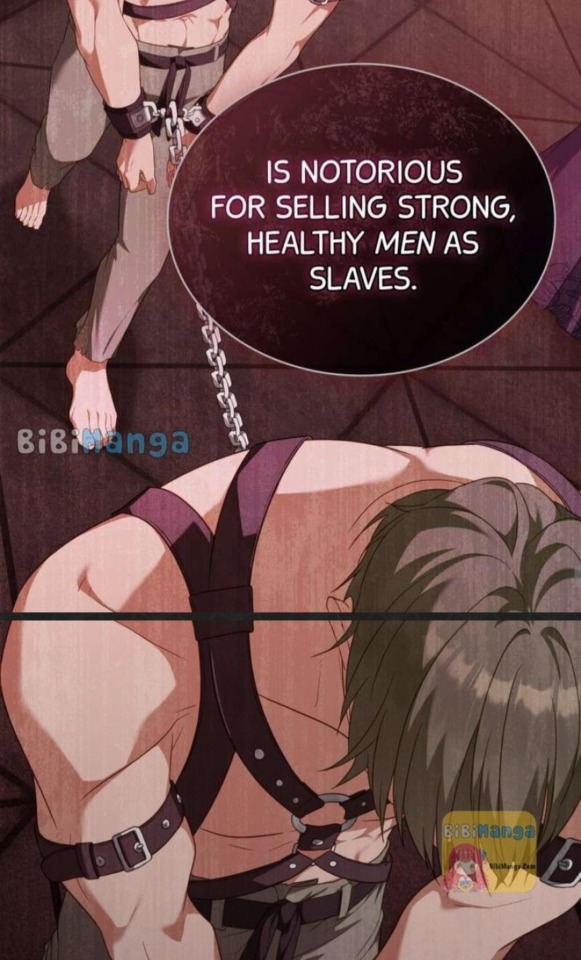
Theres nothing wrong with wanting to insert slavery in your story AS LONG as it's not just cheap plot to make your MC look "better" by buying from a single to all of the slaves because let me tell you this: there is no such thing as a good slave owner, you cannot morally own another human being. A lot of manhwa like to have slavery be a part of their plot completely ignoring that just because the MC goes "wow this is terrible" doesn't make them a good person after they buy a slave.
Remarried empress does this with its villian Rashta by pushing the notion that she's being greedy for not wanting to stay in poverty so Navier won't suffer because apparently a slave wanting what the silver spoon mouthed nobles were born into is so terrible not to mention they justify slave owners and slavery in general as a punishment for criminals (neglecting the fact that children can be sold by their parents)
The villainess has fun again justifies a child slave being bought by the lead and he becomes an obsessive shouta love interest, fans continously justify by using the ancient lolicon excuse "he may look young but he's actually 99182823 years old!"
In divorcing my tyrant husband, Robelia buys 30 slaves and the only 2 that consistently show up have no other personality other then "we love you FL we will worship you till the end of time!"
There's a damn manhwa out there literally called the order of slave breeding and even when a story tries to do this correctly such as VADTD with Penelope being portrayed as a bad person for what she did to Eckles, fans have been so deluded by the idea that FL's buying slaves is "girlboss" that they think Eckles should be grateful to be Penelopes "pet"
2: ML's murdering innocent people after one guy hurts the FL
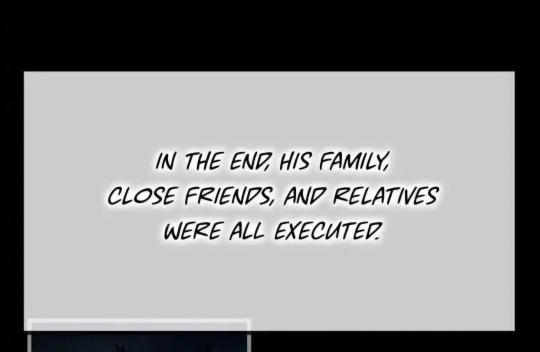
I already made a specific post about it before and I'll say it again: all this does is make your male lead/father figure look like a horrific monster. While you could say it's because its a medieval kingdom (objectively that is true that they would do this) manhwa and OI is the same place where despite in those times taking a mistress was considered normal they still view it as cheating and "how could you pick that slut when you have such a perfect wife!? 🤬" in most stories. So yes, modern morality is still inserted within these tropes. While I can get it's a way to show that the man in questions loves the FL so much he's willing to go to such lengths to protect her I think just mutilating the guy that actually did the sin would be enough because try imagining yourself as a faithful servant who was amazing at your job getting brutally slaughtered by the Emperor because your boss attacked his daughter or lover.
Into the light once again does this with Aishas dad murdering all the relatives and close friends of a count that tried to kill Ysis and Aisha, Aisha doesn't seem to care despite being in a situation where she was wrongfully executed in her past life.
Remarried empress does this too. After Navier is nearly killed by Krista's brother, Heinrey tortures and kills the dad and slaughters the servants of the zemensias. I can't remember if he also murdered the remaining family members but I wouldn't put it past him.
3: protagonist centered morality
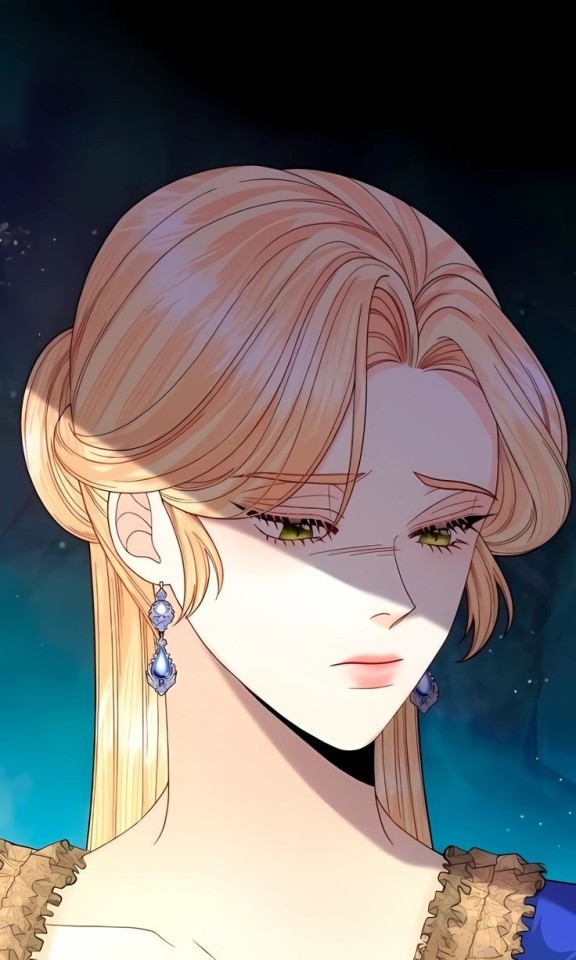
Protagonist centered morality is the biggest indicator that a piece of media is dealing with a mary sue FL. Whatever the protagonist says is right is immediately morally correct. This is actually used to justify the last 2 examples with "it was for the FL!" Things like slavery, murder, workplace abuse, union busting, pedophilia, and being a POS to your loved ones are all justified if the protagonist finds a cheap way to justify it and you HAVE to agree with her because her backstory is very tragic 🥺. Protagonist centered morality also ruins the chance for good characters since the FL herself never has to grow as a person so she stays the same exact thing as she was just with more enablers and random characters will be treated as villains even if they aren't actually wrong about being suspicious of the Protagonist or calling out her behavior. It twists the narrative in such incomprehensible ways that you don't even know what your reading anymore. I can't even list all of the manhwas that do this given how many there actually are so I'll just list some that are at least self aware there Protagonist is awful/morally grey or isn't even a bad person but they still have flaws that can be pointed out
Villains are destined to die
My in laws are obsessed with me
Not sew wicked step mom
Depths of malice
The villainess turns the hourglass
Beware of the villainess.
4: villains being dumbed down to make the lead look smarter

This is unfortunately another common staple often used as a quick way to make the FL look smart and witty but is that really hard to look smarter when everyone else around you is an idiot? Not only does the FL not have to put in actual effort to best her enemies but you just start to pity the villain for basically being a punching bag. Dimwitted villains aren't always bad in fact they can be some of those most entertaining characters no matter much they lose but that only works when they are meant to be seen as a goofy character that your not supposed to take seriously. Villains that are written as extremely childish and stupid but your still supposed to treat them as serious antagonists on the other hand are just annoying since you wonder how the protagonist even got killed by them in the first life if they're so stupid.
Isabella de Mare while admitly having a good reason for being dumbed down (she's a teenager in the 2nd life so it's reasonable she wouldnt be as smart as her adult counterpart) is still a joke of a villainess who keeps flipping back and fourth from a snot nosed whiny brat to a mastermind only at convenient opportunities when the plot needs conflict.
Mielle from the villainess turns the hourglass was first portrayed as extremely conniving as she arranged for Arias downfall in the shadows but in the second life she fails at every scheme she has even though she has Emma and Isis to help her out.
Ragibach is a literal demon possessing the body of another woman with the goal of setting demons loose on the word to start another human vs demon war and she succeeded in that the first time, the devastation was all there so clearly she has to be a formidable antagonist right? Well no, she's another case of being dumbed down further and further so Keira can succeed and while they do understand some plot holes such as Ludwig not trusting her as much in the second life it doesn't change the drastic character change from evil genius to bumbling idiot.
In short: dumbing down your villains so your lead can look smarter is essentially going to give the equivalent of a hydrogen bomb vs a coughing baby.
5: feminine women being demonized as basic "other girls" sluts
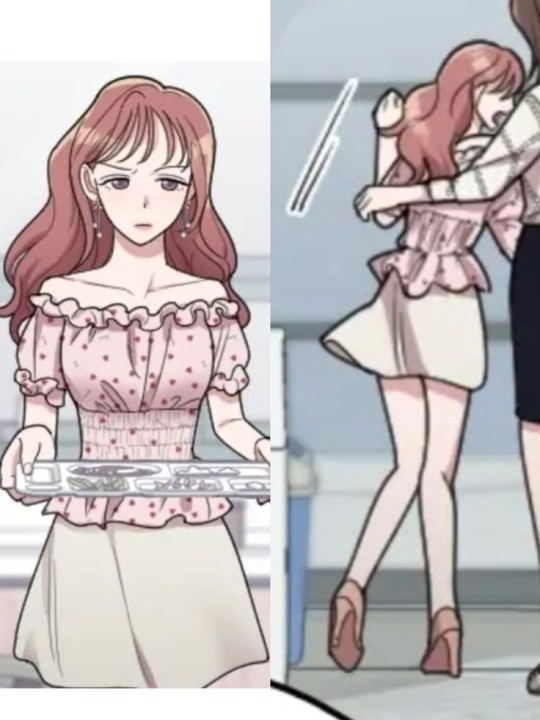
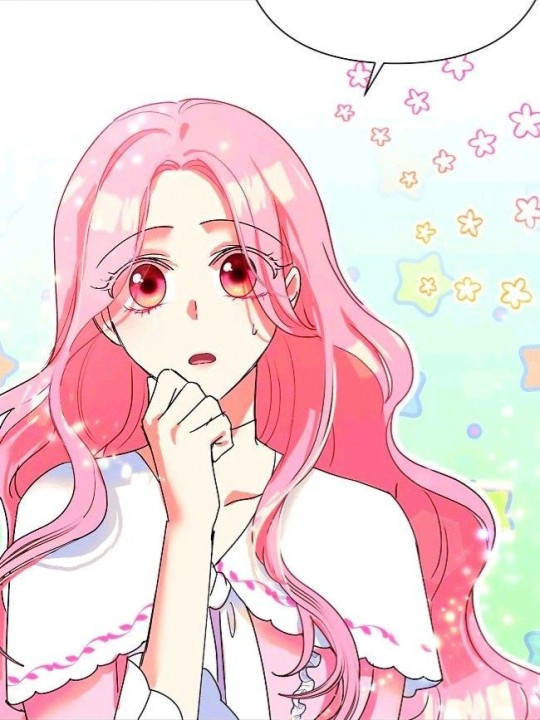
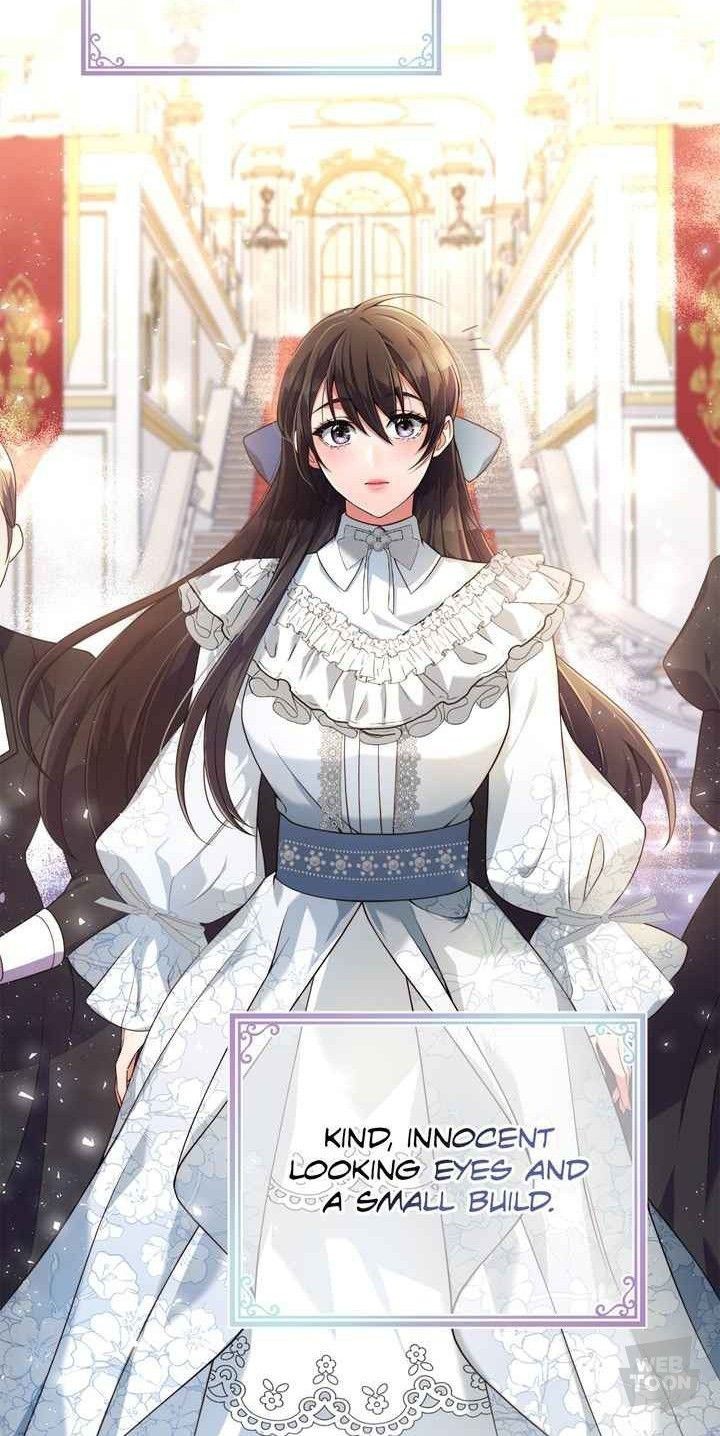
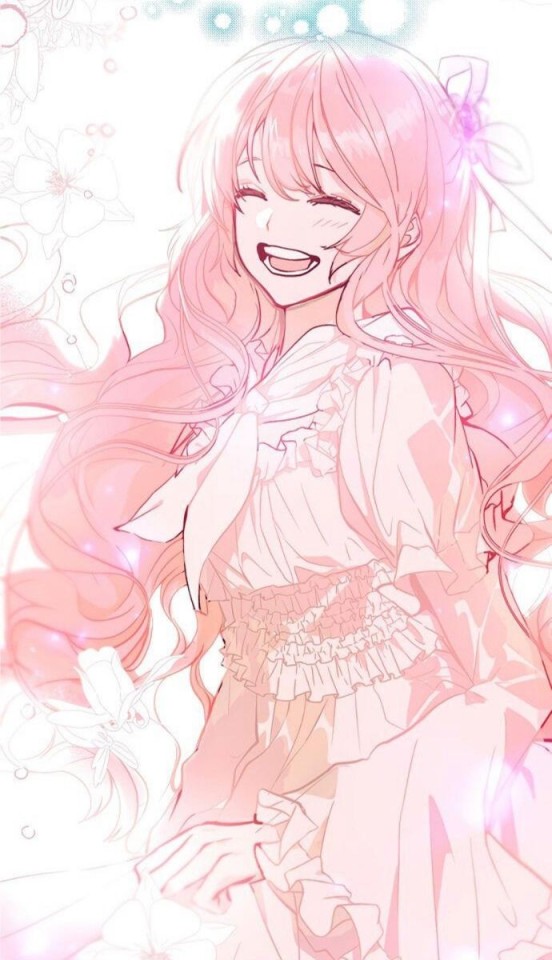
Okay this one isn't nearly as terrible as the others on this list because we all love the good old "a demon makes itself look beautiful to deceive humans" kind of villain, in fact as you probably know by me by now, white lotuses are my favorite kinds of character and even in media outside of manhwa I always find myself drawn to angelic villains but it seems like this is less of that and more of "Oh those are all the other girls who just want a man to save them, look at how much better my badass rich boss babe is for working for herself while taking all of their men at the time 😎" in manhwa. As soon as a traditionally feminine girl shows up, comments are already calling her a two faced bitch and half the time protagonist is already skeptical of her. This is the opposite of what being a feminist really is, a real feminist wouldn't be putting down other women just because they dress with more pink with bows and skirts and while I do think for most manhwa this is unintentional I do wish that we could have more characters like Psyche, Helena, Athy, and Jennette that prove that being overly feminine doesn't make you a backpedal on feminism. This doesn't make the badass or sexy fl's bad either, it just means they can co-exist.
An angelic villain should be treated as evil for being a well calculated schemer, not because they have a light colored color scheme
6: toxic relationships being romanticized as good
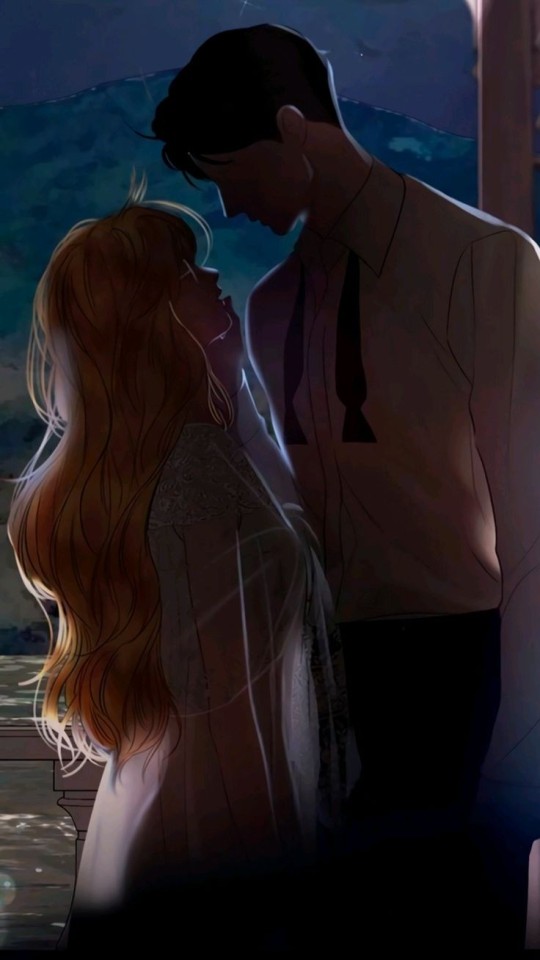
You know for a large community that claims to be about girl code a good chunk sure likes to look the other way when it comes to toxic relationships as long as the abuser is "hot" and theres always the terrible excuse such as "he has trauma!" Or "he doesn't know how to show his love normally!" No just no we aren't doing that here. Cry or better yet beg has this problem with not only the narrative claiming that Matthias graping Layla is okay because she actually loves him and doesn't know it but a large part of the fanbase also defends it, the same goes with try begging, a manhwa written by Solche who also wrote cry or better yet beg and once again despite Leon being an abuser everyone's ready to justify his actions because he's just a soft little boy who ends up falling in love with Grace awww 😍 (what the hell?) Everyones all about not justifying abusers because they had a sad past until it's the "sexy" male leads with daddy issues.
7: maid slapping
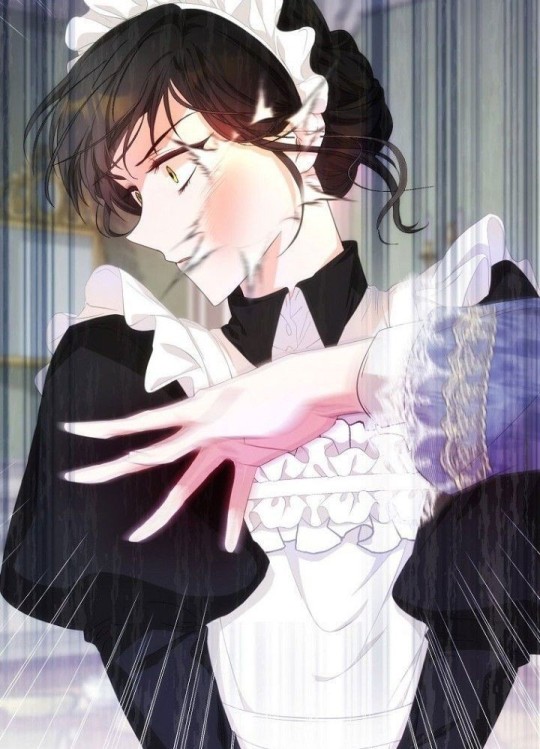
This shit isn't asserting your dominance as a boss bitch it's just work place abuse. This trope has gotten so out of hand of being justified by narratives and readers that there is an entire webtoon called this isekai maid is forming a union that's all about criticizing twisted manhwa tropes that get brushed off with maid absuer being at the biggest one. It's funny because a lot of people complain that Isekai maid union villainizes the nobles too much but they never ask the same questions when a OI is demonizing maids as greedy and lazy in order to deserve a beating. This doesn't just stop at hands either it can escalate to threats of mutilation just to assert dominice which is absolutely sick. Most of the time these leads used to be office workers or terminally ill patients, they know how terrible it is to be treated like garbage by their superiors yet they continue to absue every maid who isn't getting on their knees for them. Most maids in real history would not mistreat a noble even if they were the most hated in the house and even if they did they'd be fired without a letter of recommendation so why can't the FL's just fire the rude maid if they care about dignity so much because I'm pretty sure getting violent with a maid isn't very dignified either.
8: disgusting age gaps

Very similar to #6 but in this case while the ML/FL isn't a cruel monster to their partner it doesn't change the fact that grooming and pedophilia is still a crime worthy of life in prison. You'd think "oh no way, this can't be justified can it?" You'd be wrong. Now I belong to house of Castillo thankfully has a larger fanbase of people who think that a relationship between a girl who got groomed by her knight is bad but in cases like into the light once again a lot of people like to say "Well Aisha is technically 28 so it's fine!" When it really isn't since Aisha is still mentally 14. Taming my ex husbands mad dog is another one that does this with Reinhardt grooming a 16 year old boy and its apparently meant to be "cute".
9: claiming a character as unattractive yet giving them a perfect body and appreance
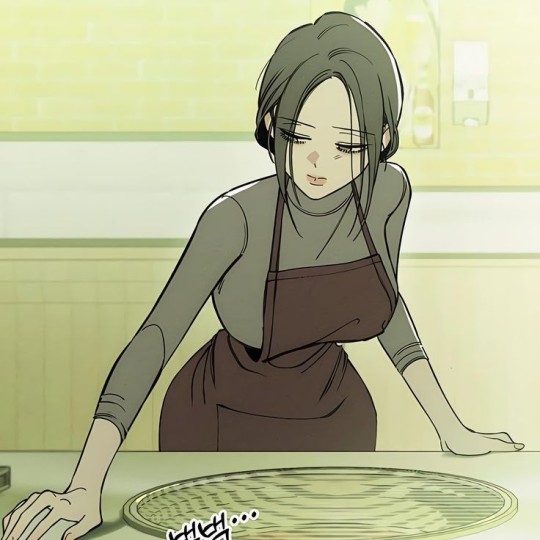
I just think this is a major cop-out since there's time where they want to make a realistic story yet also wanting a fantasy fufilment. I don't think its a coincidence that the only woman in tears of a withered flower that yout supposed to support is a Victoria's secret model body type. Even though she's meant to be an overworked exhausted 33 year old woman being mocked for losing her beauty she sure as hell isn't drawn that way, the only other women around hae soo are all women with smaller boob's and in general more common body types that are either classed as stupid or jealous that Hae soo is so beautiful that all the attractive men want her
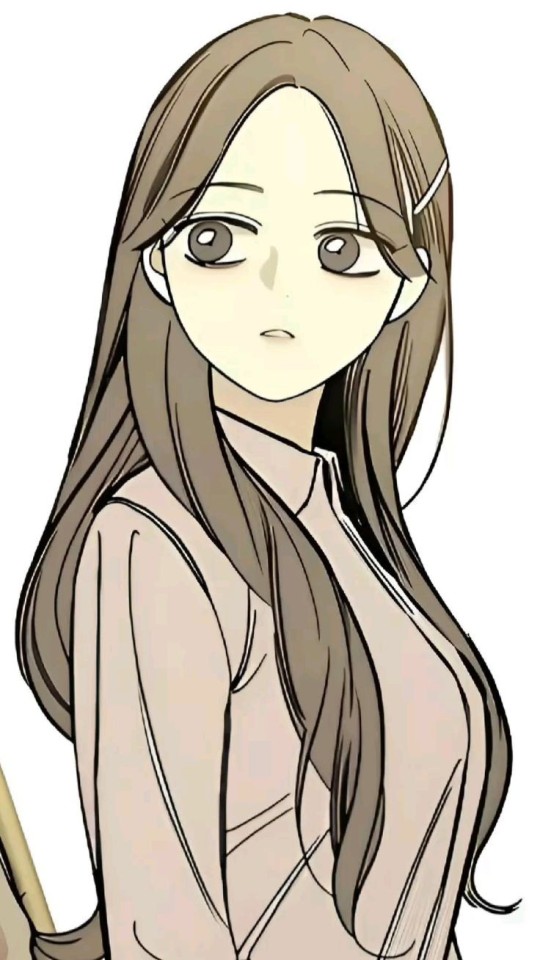
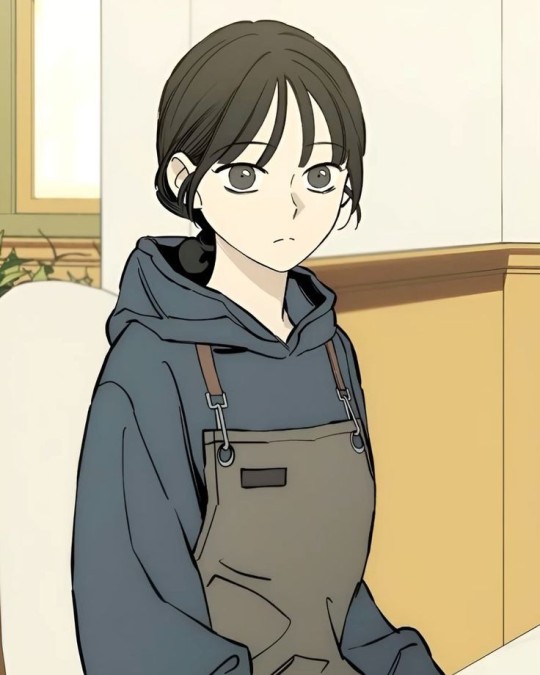
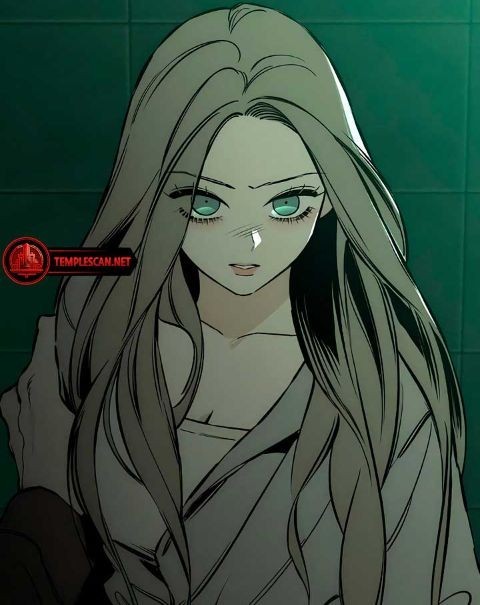
how about we don't pit all the women against each other for once? And let's especially not villainize other women because their jealous they could never be have large boob's and tiny arms+waist at the same time?
10: the commoner protagonist actually being a noble rich person all along
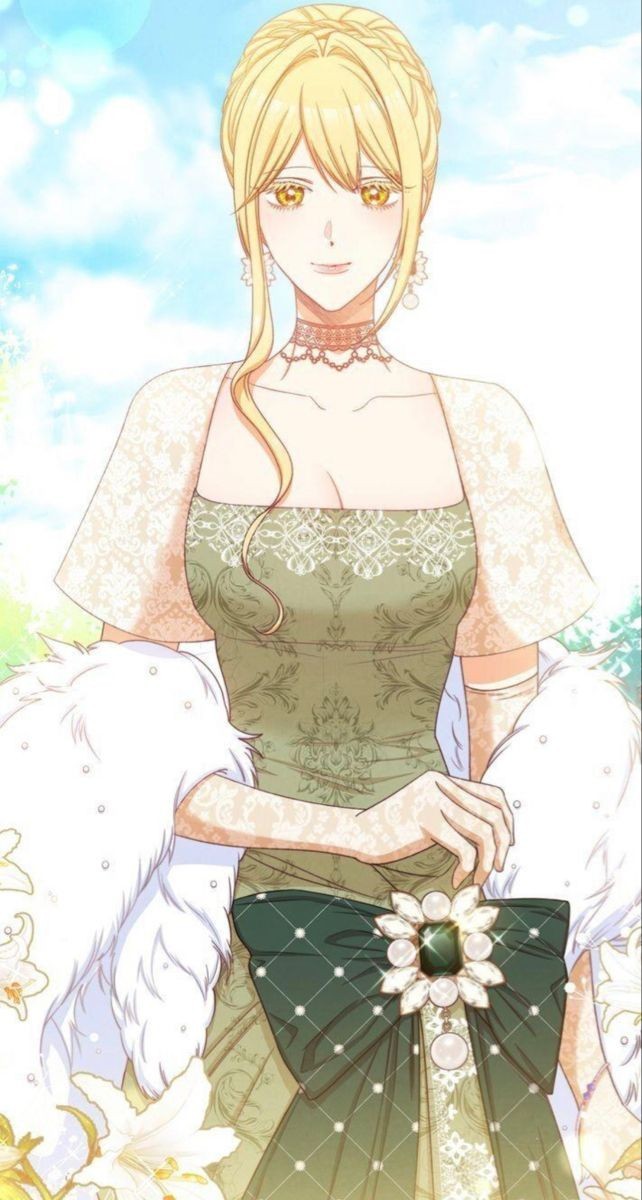
Look I know most of us had loved those "the hated child is the lost princess" GLMM but we need to drop it because it's kinda disappointing that the nobody who had to work their way to the top is actually a secret magical princess who had royal blood in them all along. While I did think the villainess turns the hourglass was a pretty decent read I was super disappointed finding out that Aria was of noble descent all along. I liked seeing a commoner protagonist for once and it really felt like it was critiquing the idea that all commoners and poor people who want nice things like the nobility are greedy animals. Something similar can also happen with certain saintess manhwas that decide to twist itself into "the villainess was the true saintess all along!" And I'm just sitting here thinking "well there goes the hope that you didn't need the super duper rare power to be a strong character"
I feel way better now after writing all this.
#manhwa#webtoon#tapas#sister i am the queen in this life#actually i was the real one#the remarried empress#the remarried empress critical#into the light once again#i belong to house castillo#today the villainess has fun again#the villainess reverses the hourglass#tears on a withered flower#marry my husband#50 tea recipes of the duchess#cry or better yet beg#try begging#tropes#bad tropes#this isekai maid is forming a union#divorcing my tyrant husband#villains are destined to die#death is the only ending for a villainess
457 notes
·
View notes
Text
Need to go on a rant about the feudal system (more specifically manorialism) and Gideon the Ninth (spoilers through Harrow the Ninth ahead)
Gideon is very specifically described as living in a feudal system in the Ninth house. She is a Serf. She lives and serves under a ruler, she has specific legal, social, and economic obligations to the House and its ruler as a result of this system.
Feudalism exists within a specific sociopolitical context. It’s not equivalent to slavery, though it can appear that way to a modern audience. Muir wouldn’t have picked the term “serf” to describe Gideon if she didn’t mean it, or if she meant something else (such as slavery or indentured servitude)
Serfdom is not ownership of an individual, like in slavery. It’s more like an intense landlord/employee relationship, if we’re looking for a modern touch point. A serf is bound to the land they live and work on because they are a valuable source of labor. They owe labor, goods, or a payment in equivalency to, the lord who runs the lands they are bound to. If they want to go elsewhere, they have to pay back the lord for what labor/goods they won’t be providing anymore, and the lord could refuse them.
Because this is also a reciprocal relationship, the lord also has certain responsibilities to the serfs, including protection, the maintenance of the law, and maintenance of the lands. The lord runs their holdings as ruler, but also can’t just do whatever they want. This is a social, economic, and political system, if people didn’t like it or benefit from it and had the capability to do so, they would rebel.
(Sorry for this long tangent. It’s important to set context and also discuss this history. Feudalism/Manorialism looked different in different places and times, and originally came from Roman villa systems, but this post is already long enough)
So what does this have to do with the locked tomb?
Gideon is a serf, very explicitly. She is also a ward, which puts her into an interesting spot when it comes to legal and financial responsibilities. This means she owes labor and fealty to the Ninth, essentially in repayment for raising her.
When she tries to head to the Cohort, she would otherwise be allowed to do that as a free citizen of the Ninth House. But, she has prior responsibilities to the House as a serf, so she would need the Lord’s (Harrow’s) permission to do so. Despite these obligations, she is not required to do any particular jobs in the Ninth. She is not forced to be a nun, or to do labor. From what is described, it seems like she’s relatively left to her own devices.
In a system of slavery, Gideon would be forced to enact specific labor, to learn a specific trade, and to generally do whatever the fuck Harrow or the Reverend family wanted. But she’s not.
Again, Gideon can train to join the cohort as much as she wants. She can lock herself in her room and avoid people as much as she wants. She can avoid prayers or choose to go to them. She can do what she wants, but she is not allowed to leave to take her labor elsewhere without authorization, because of her legal and financial obligations in this sociopolitical system.
Ortus puts it very well in Harrow: he must follow her orders and fulfill the responsibilities he socially is obligated to fulfill, but when he lays his head down at night he is allowed to feel however he wants about himself and his actions, he is still a free person. Ortus is in a slightly different situation as his position at birth obligates him to be Harrow’s Cavalier, as opposed to Gideon who is in a lower social position and is the only option left, but he still owes a large amount of loyalty and labor to the Ninth House.
(Sorry again this is so long. I repeat myself quite a bit. But I saw someone say that Gideon is Harrows slave and that is a misconception that brushes over a lot of the complexities of the books. The relationship is complicated and full of social dynamics that we don’t see as modern readers because there are so many layers that require historical context. This is also not a defense of the feudal system or to say that their relationship isn’t toxic. It is. But that’s a different post)
#the locked tomb#gideon the ninth#harrow the ninth#harrow the ninth spoilers#harrowhark nonagesimus#gideon nav#ortus nigenad#feudalism#manorialism#historical context is fucking important my guys#tasmuir is using very specific parallels to the real world#tlt meta#rants n rambles#gideon the ninth spoilers
298 notes
·
View notes
Text
When purchasing something, think about how much it costs to make. Think about all the elements involved in making that item. Consider the raw materials, the processing of those, and everything that goes into the final product. Think about how much the person who made them at each step along the way was likely to be paid.
So many "cheap" products are rife with Modern Slavery at some point along the way. From forced labour in cotton plantations, through to sweat shops, and then your final $5 T-shirt. Or perhaps child labour in cocoa harvesting or cobalt mining through to your $2 chocolate or $1000 mobile phone.
Become a much savvier buyer and put pressure on companies that are acting unethically and allowing modern slavery in their supply chains, so they clean their act up.
Some references for you:
SHEIN and Temu aren't the innocent, budget friendly alternatives you may think them to be. They're both companies rooted in exploitative, inhumane business practices, including dehumanising working conditions and slave labour. There's a viral video going around that shows a large amount of Temu factory workers, barely clothed and being observed by security guards, as they sort through thousands upon thousands of packages.
These companies thrive on enticing people from lower socioeconomic backgrounds into overspending by using game-like incentives (interactive spin wheels to increase discounts, minigames revolved around adding more items to your cart or wishlist, etc.) while using their apps. These apps are carefully and consciously designed in such a specific way that encourages people to feel pressured into overspending for fear of missing out on an unmissable deal (this is a common business practice that extends far beyond SHEIN, Temu, and other fast fashion companies).
Their apparel and clothing is made as cheaply as possible with poor quality material (which ultimately means these items have to be replaced sooner and thus help perpetuate a toxic consumerist cycle) and often using stolen art and designs from independent artists. Do yourself a favour and stop supporting the toxic fast fashion industry. Thrifting, upcycling, and learning to make DIY clothing are infinitely better alternatives and help to support your local community.
#Modern Slavery#Supply chain risk is my day job so I have opinions#Collectively we can make a difference
2K notes
·
View notes
Text
'The Adoration of the Shepherds With a Donor.' Palma Vecchio. A contemporary of my maker, Marius De Romanus, also a fine painter, albeit one of lesser skill. In fact, the donor in the title was my maker. The canvas painted in my maker's studio. And in this case, the donation was…What is the modern word for it? In kind. This is Amadeo. He's 20 years here. He was rescued from a brothel when he was 15, named… named Arun then, I think. I cannot be sure. The abuse in the brothel was such that he cannot be sure that's what his… parents named him. Arun. The parents that sent him to work on a merchant boat in Delhi when in actuality they had sold him…into slavery to the ship's captain. All… fragments. Shackled on the boat. The brothel. My maker's purchase. His renaming me. His reluctance to share the Dark Gift, knowing what it would do to his beloved Amadeo. I served him with all my heart. Basked in his mercy, his worshipful mercy. Still… Amadeo had a skill. And if a friend wandered into town, I was occasionally… donated. Meatier in the forearms, but then this was… seven years before I was stricken with illness, before I was turned, and imbued with my powers.
And Armand?
The name the coven in Rome gave me. After they set fire to the studio. Set fire to my maker. And sent me to Paris, to reign over the coven abandoned by Magnus. Magnus who begat Lestat. Lestat who begat Louis. On and on. And on and on and on.
Who am I, Louis? Am I my history I have endured? Am I the job I do not want? I do not know anymore. No one has painted me in over 400 years.
#vampterview#interview with the vampire#iwtv armand#gif can't do him justice#iwtv spoilers#assad zaman#video*#iwtvedit#louis de pointe du lac
784 notes
·
View notes
Text
For Juneteenth I want to tell you about Sarah Boone: inventor of the modern ironing board, and the second Black women to receive a US patent.
Sarah was born into slavery in Craven County, North Carolina in 1832. Legally barred from education, her grandfather secretly taught her instead. In 1847 she married freedman James Boone, and was herself freed for unknown reasons. They moved to New Haven, Connecticut before the civil war, and had 8 children together.
James worked as a brick mason, and Sarah worked as a seamstress and dressmaker. While other inventors of the 19th century had been slowly improving the design of ironing boards, Sarah found them inadequate for the job, so she set about making something better.
She wrote in her very detailed patent,
"The purpose of the invention is to produce a cheap, simple, convenient and highly effective device, particularly adapted to be used in ironing the sleeves and bodies of ladies’ garments."
Her ironing board was narrow, curved, symmetrical, and tapered so that the narrowest parts of a garment could fit around it flatly without ceasing while easily turning the garment for each side. It was padded so the fabric would drape more gently, also reducing ceasing. It had collapsible legs that started towards the center of the board so that there was plenty of room for clothes to fit around it while also being mobile and easy to store. It was easy and cheap to manufacture so that it would be accessible for anyone to buy. Especially important when Black people were (are) both poorer and more harshly judged for their appearance.
She submitted she her patient in July of 1891, and obtained United States patent number 473,563 in April of 1892. 132 years later we are still using Sarah Boone's design with very few changes.
She died in 1904 at the age of 72 and is buried in the family plot in Evergreen Cemetery in New Haven.
So next time you iron something, admire how well thought out and purpose built Sarah's design is. Black excellence and freedom made that possible. If she'd remained in slavery she would never have been able to design it or patent it.
I'm thinking about her story today and mourning the generations of Black innovation we never got because because of slavery. All that brilliance held back by such an evil and dehumanizing institution. All the Black innovation held back today due to the legacy of slavery and ongoing racism. The inmates who are still legally enslaved in this country and not given a chance to thrive and create. I'm thinking about how reparations could help other descendents of slavery have the money to work on their ideas. (Or just live other fulfilling lives because no one should have to be exceptional to be respected.)
I'm also thinking about how vital Sarah's ironing board has been to activist organizing. They're cheap, flat, long, fit in small crowded rooms, and historically everyone had one. The humble ironing board was vital to the Civil Rights movement, union organizing, and the queer rights movement among others. Ironing boards are an unsung hero of Black liberation.
Ironing boards are so simple that we never think about the care that went into their design or the woman behind them. But we should. And now you know the story.
241 notes
·
View notes
Text
Finished reading Cobalt Red by Siddharth Kara and he does a good job showing how the cobalt supply chain is inextricable from incredible human suffering, near-slavery, rampant exploitation, environmental devastation, and child labor. And it’s very clear that no promise a tech or battery manufacturer makes that their supply chain is clean means literally anything bc industrially and artisanally mined cobalt are mixed into the same supply untraceably. And the book also covers the fact that cobalt supplies are finite and when the DRC’s cobalt is exhausted the industry will move elsewhere, rinse and repeat, and the people in the Congo will be left with the ongoing and unremediated -maybe irremediable - damage. All of this so that we can have smartphones, electric vehicles, iPads, electric scooters, almost anything with a rechargeable battery.
It’s also clear that the tech and battery industries are interested in good PR and making empty statements about human rights when they should be taking responsibility for the working conditions of small-scale miners (and minors) dying at the bottom of their supply chains. What Kara doesn’t really address is the demand side of this equation, not just the demand by companies whose products use cobalt-containing batteries but also the consumers sustaining that demand, who buy every new smartphone and eagerly pin their hopes on electric vehicles to let us keep our car-dependent world without the fossil fuel guilt. The book takes it for granted that cobalt will be required in high quantities for consumer electronics and for “green” tech, and to some extent this is true - as in, none of those demands or uses will cease overnight and in the meantime we should worry about how to address industrial and business practices and government corruption in order to treat Congolese miners as human beings.
But it feels incomplete without also asking questions like: should that demand continue? Can it? Do we need this many devices? What costs are acceptable? Can we really have our cake (smartphones, EVs, etc) and eat it too (slavery-free, non-exploitative supply chains that don’t kill the people at the bottom and lay waste to the environment)? What if - as the book would seem to suggest - we really cannot? If one goal of the book is for people to realize what conditions underlie the extraction of cobalt, what action is then incumbent upon us? Personal consumer choice will not undo all this harm, but it is a necessary step in rethinking or attempting other ways to live. Is it a right to have a smartphone, a new one every year or two, if it comes at the price of other people’s human rights? At what point do we say that it is not an acceptable cost that the extractive industries are perpetuating neocolonialism and near-slavery in order that we should have comfortable lives?
We know we have to stop relying on fossil fuels or we’ll burn down the planet (to a greater degree than is already locked in) but the “green energy transition” is not clean at all. Capitalism seeks the lowest price for labor and the highest profits; obviously these extractive relationships owe a lot of their horror to being conducted in a capitalist milieu. But even thinking about, say, a socialist world instead, if it aspires to still provide smartphones and electric vehicles en masse and maintain the comforts and conveniences of the “Western” lifestyle then we would still be relying on massive amounts of resource extraction with no guarantee of less suffering. The devices are themselves part of the problem. The demand for them and the extent to which “modern” life in “developed” countries relies upon them is part of the problem. It is unsustainable. It is built on blood and it makes a mockery of purported values of dignity, equality, and human rights. The lives of Congolese cobalt miners are tied to how we in the “developed” or colonizer countries live and consume. I do not think their lives will change substantially unless ours do.
#will look for good quotes from the book too#it’s a good book I just think it lets consumers off the hook a bit#and assumes that we will need all this cobalt no matter what#sorry still posting abt resource extraction let’s see how badly ppl take it this time#cobalt#cobalt red#resource extraction#skravler
96 notes
·
View notes
Text
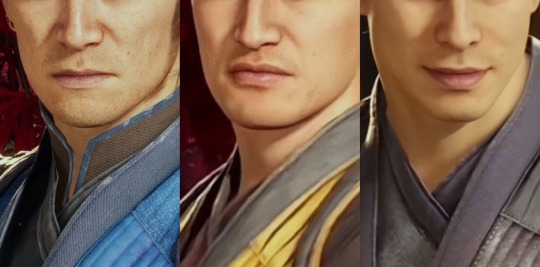
In the Middle of the Night🌙
-> Ao3 link is here.
-> Part Two is here.
Pairings : Bi-Han/ Sub-Zero x You, Kuai Liang/ Scorpion x You, Tomas Vrbada/ Smoke x You
Tropes : Slavery, Past Sexual Abuse, Canon-Typical Violance, Emotional Hurt Comfort, Strangers to Lovers, True Love, Foursome, F/M/M/M, Dark Magic, Eventual Smut
Summary : After a mission gone wrong, Bi-Han, Kuai Liang, and Tomas find themselves sealed inside a book as love slaves. Whoever discovers the book and utters the incantations within will not only become its owner but also the master of the Lin Kuei’s three deadliest assassins.
For you, grappling with the weight of a solitary life and enduring a particularly rough day, stumbling upon this mysterious book was an unforeseen twist. As you bring the book home, unaware of its contents or the events that led to its creation, the ensuing chain of events will shatter the tranquility of your world, forever altering the course of your life.
Title and work inspired by the “Elley Duhe-Middle Of The Night” song
.
.
.
CHAPTER ONE : (READER)
You were enduring one of the worst days of your life.
Your alarm didn’t sound in the morning because you were too fatigued to remember to charge your phone the night before. With its poor battery life, it ran out quickly. Living forty-five minutes away from the city center, you should have caught the subway at least an hour ago to make it to work on time. Despite the pressing need for money, uncertainty loomed as you grappled with the inevitability of firing. The job, despite its dreadful conditions and an insufferable boss, stood as your best opportunity in months - too valuable to risk losing.
Although you had graduated from college with a commendable degree, the job market proved bleaker than anticipated. Your once-bright dreams faded as the harsh reality of post-graduation life set in. Most desirable positions demanded experience, yet securing experience required entry into these very positions. While a diploma opened a few doors, the conditions were often as harsh as modern-day servitude, albeit with insurance and a predictable late salary.
Your current role as a programmer at a gaming company offered no respite. Long hours in front of the screen left your eyes bloodshot, encircled by dark rings, and your neck perpetually aching. Despite the hardships, a promise to your distant family fueled your determination to stand on your own. Abandoning everything and returning home was not an option after coming this far. You had shed too many tears to surrender now, enduring the suffocating loneliness of solitary dinners in your cramped kitchen as you pursued your dreams.
Thus, with a reminder of your purpose, you hurriedly left your apartment. Despite the packed subway and the frenzied rush, you managed to trim your commute from fifteen minutes to a mere seven and a half. Yet, upon arrival, your efforts were futile. Summoned to your boss’s office, you were promptly instructed to collect your belongings and leave the company, denied even the opportunity to provide an explanation.
You were keenly aware of the disdain your boss and coworkers held for you; it was an open secret. They resembled vultures, poised to oust you at any moment. As the lone rookie, you were perceived as nothing more than a liability. Despite your efforts to avoid seeking their assistance by tackling most tasks independently, being in your first year of the profession meant there were occasions when you needed guidance or support. Yet, camaraderie was a foreign concept in this office. Compared to other workplaces, the only semblance of unity stemmed from shared breaks and lunches.
A part of you felt relief at the prospect of bidding farewell to a workplace where you found no joy. However, the dominant part, fueled by anxiety, fretted over how you would cover rent and expenses. Although you had a modest emergency fund tucked away, it would only sustain you for about a month. Urgency gnawed at you as you roamed the streets with a cardboard box containing your few office belongings, scouring for job advertisements. Picky was a luxury you couldn’t afford; you were prepared to take on any role, even as a barista or waitress, until you secured a position closer to your aspirations. Survival necessitated prioritizing money above all else.
As the day wore on, you lost track of time. With the setting sun casting a dim glow and street lamps flickering to life, tiny raindrops began to graze your cheeks and nose, soon escalating into a downpour. Despite the onslaught, you mustered the strength to suppress the curses threatening to spill forth. Rushing back to the subway, you braved the rain without an umbrella or proper clothes, mindful of the looming threat of illness. With no funds to spare for hospital bills or medication, resuming your job hunt from the shelter of your laptop seemed the safer option.
Arriving at the subway, drenched from head to toe, you collapsed onto the nearest available seat, your legs barely able to support you. With a heavy sigh, you closed your eyes, feeling the weight of the day’s exhaustion bearing down on your body. The simple act of sitting down was a luxury, a stark reminder of just how fatigued and stressed you had become over the course of the day. You rubbed your weary legs in an attempt to generate some warmth, soothing the cramps and chasing away the chill brought on by the rain.
As the subway doors slid open with a ding, a wave of commuters flooded in, filling the once-empty seats around you. Seizing the opportunity to rest your eyes until reaching home, you leaned back against the seat with the cardboard box resting on your lap. Tired, cold, and hungry, the numbing effect of the rain provided a brief respite from the stress, deserving of a well-earned nap.
When the ache in your neck became unbearable, you reluctantly opened your eyes, realizing that your stop was approaching. Glancing down, you noticed a book lying on the seat beside you, as your grip on the box was dangerously close to slipping from your grasp. Picking it up, you scanned the faces around you, expecting someone to claim the book or acknowledge its presence, but no one seemed to react. Confirmation dawned upon you, the book had been left behind, seemingly forgotten by its owner.
Although the book appeared hefty, its weathered cover hinted at years of use and handling. Despite its age, it felt surprisingly light in your hands, its once vibrant hues faded to muted tones. Adorned with a pale gold cover devoid of any text on the back, the book bore the scars of countless readings and journeys. Turning the book over to avoid catching your tired reflection on its worn and shiny surface, your lips parted in mild surprise. Three striking male figures graced the cover, their details rendered with such realism that they almost seemed tangible, despite the signs of wear and tear. Your finger traced over the hyper-realistic features with impulsive curiosity, only to retract abruptly as if scalded, suddenly aware of your surroundings.
As a sweet ache pulsed between your thighs, you found yourself unexpectedly aroused by a mere image, prompting you to shift uncomfortably in an attempt to quell the throbbing sensation. It had been quite a while since you last shared intimate moments with someone, but even that didn’t entirely account for the sudden surge of desire sparked by a simple picture. Stirring memories long buried within you, igniting a hunger you hadn't realized existed until now.
A blush warmed your cheeks as you examined the figures once more. The trio bore the semblance of warriors or assassins, albeit clad in scant attire. The man on the left possessed a sun-kissed tan, his muscular frame adorned with a large scorpion tattoo on his left arm. His black hair was artfully swept across his face, his golden mask veiling a stern gaze as he brandished a flaming kunai, its rope end poised for action.
Your attention shifted to the figure at the center, whose face remained partially obscured by a silvery black mask. Despite the concealment, a strange sense of familiarity emanated from his features, mirroring those of his companion. His complexion was pale, revealing blue-green veins beneath the surface, while his dark eyes emanated cold, dominating arrogance. Black hair, tied in a low bun with a few tufts escaping to frame his strong features. Massive biceps framed his imposing stature as he wielded a sword of ice, poised to strike with lethal precision.
In stark contrast, the figure on the right differed greatly from his counterparts. Towering slightly above them, he bore little resemblance to an Asian individual, exuding a distinctly European air. His skin was also light, and he wore a grey-colored mask covering half of his face. A thin, light grey smoke emanated from his body. His short gray hair and softer gray-blue eyes lent him a gentler appearance, juxtaposed by the lethal aura exuded by the carambite adorning his finger. Despite his softer features, his lethal prowess was undeniable.
As you scrutinized the cover, a perplexing question lingered: why would the illustrator depict warriors in such a manner if not for a romantic context? Their barely dressed and provocative poses hinted at a fantasy narrative, reinforced only by the presence of their weapons. Without them, the figures might have appeared more akin to love slaves than skilled warriors. “An intriguing choice,” you murmured to yourself, pondering the illustrator’s intentions behind such a depiction.
As you opened the book to look at the chipped pages, curiosity piqued about the contents within, you suddenly realized that your stop had arrived. Hastily tucking the book into your box, you sprang to your feet with a muttered exclamation.
“Oh, shoot!” With a swift maneuver, you barely managed to slip through the closing doors of the crowded subway. Amidst the post-work rush, the mingled scents of sweat and cigarettes engulfed you as you navigated through the throng. Minutes later, emerging from the subway, you drew a deep breath, filling your lungs with the scent of rain-soaked earth.
Your journey to home passed in a blur, your body moving on autopilot along familiar streets and corners. Before you knew it, you stood before your fifth-floor apartment, a small abode consisting of two rooms and an American kitchen. Its most prized feature was the balcony, a sanctuary where you relished summer evenings, savoring the view with a glass of wine by candlelight.
When you arrived home, it was already nine o’clock in the evening. Leaving the box in your hand at the entrance of the door, you went straight into the shower to wash away the fatigue and grime of the day, and to replenish the warmth your drenched body had lost. You lingered under the hot water until it thoroughly enveloped your body, and finally, when the steam filled the small bathroom and you felt like you might faint from the heat, you emerged, clad in your well-worn and hardened bathrobe, with a towel wrapped around your head.
Pouring the last remnants of the red wine you opened days ago into a glass, you placed it in the microwave to heat up the leftover Chinese food you ordered a day ago. As you waited for your meal to warm, your gaze wandered to the box in the corner, reigniting your curiosity about the mysterious book. Crossing the room in a few strides, you retrieved the book and placed it on the kitchen island, settling into your chair with wine and warmed food. “I’ll worry about unemployment later,” you declared, raising your glass in a toast. “Today was stressful enough, and I definitely deserve this wine.” With a sip of wine and a mouthful of noodles, you flipped open the book’s cover with your free hand, eager to have a look at what it held.
‘’What…?” You stared at the glossy golden pages, brows furrowed in confusion, surprised to find them empty. “What kind of book is this? I don’t understand the purpose.” you muttered in disbelief. The worn-out appearance of the book added to your confusion, making you question whether something had happened before it was finished.
As you reached the middle of the book, a shocking revelation left you speechless. Lines, equivalent to about a paragraph, materialized on the previously blank pages before your eyes, causing your entire body to freeze in shock. Tremors coursed through you, as if jolted by electricity, and you grasped desperately for reality, unsure if what you were witnessing was a dream. Gasping for breath, you struggled to comprehend the surreal sight before you.
“I haven’t even had that much wine—I just took a sip.” you mumbled, your voice strained with the effort to contain your rising panic. “I’ve seen enough movies to know where this is going. I’m not reading whatever’s written here,” you declared, the thin timbre of your voice betraying your attempt to stifle a scream.
You closed the cover of the book hard and attempted to get up from your chair, but found yourself unable to move. It was as if an unseen force held you in place. The cover of the book opened again, and as the pages flickered before your eyes, the one you had just turned to was laid out in front of you once more, sending shivers of fear down your spine.
“Read it,” a demanding male voice echoed in your mind, freezing you in terror. Despite your frantic desire to flee, you remained immobilized, unable to move a muscle.
“I-I was just curious about what it says. I didn’t mean any harm,” you pleaded weakly, few tears streaming down your cheeks due to the immense fear you felt at the moment. Another voice, speaking in a foreign tongue filled the air, his tone scolding but directed elsewhere, not at you.
“We won’t harm you, master,” another voice reassured, offering a glimmer of hope amidst the fear.
“Say the words aloud, and we will serve you,” urged yet another voice, prompting a realization of the three distinct voices corresponding to the figures depicted on the book’s cover.
“W-What the…! Are they…”
“Yes, that’s us you see on the cover. We’ve been trapped in this book for a long time. You have to say the words to get us out of here,” one of the voices explained.
“You’re talking as if I had a choice,” you replied in a timid, low voice.
“Read the words, woman,” another voice commanded. It was the coldest and harshest of them all. Despite lacking a physical form, his dominant aura was unmistakable in the way he emphasized his words. His voice resonated with a deep, chilling tone, unlike anything you had ever heard before. You attempted to steady yourself, swallowing hard and clenching your trembling hands into fists on your legs.
“How do I know you won’t hurt me? Each of you had a weapon on the cover; it’s clear you’re some kind of warriors.”
“We are bound to the master of the book,” another voice interjected, his tone notably more welcoming and kind than the others. “We cannot harm you.”
“God, I must be losing my mind. I’m talking to a book,” you muttered, glancing at the pages with audible trepidation. Fear and panic constricted your throat, rendering you speechless.
“This is no illusion—it is the truth,” the same younger voice asserted after a brief silence. “Read what is written, master, and we shall pledge our service to you.”
“I-I’m not anyone’s master. Don’t call me that; this situation is already too surreal for me,” you protested weakly.
“As you wish, master,” came the compliant response.
“You won’t hurt me, will you? I’m too young to die; I haven’t even begun to fulfill my dreams…” you pleaded, your words abruptly cut off by a snarl. If not for the invisible force holding you down, you might have leaped in fear.
“Read these damn sentences!” the voice commanded, his tone harsh.
“Bi-Han, don’t frighten her!” another voice intervened.
“Fine, fine, I’ll read it!” Tears continued to trickle down your cheeks as you began to recite the words aloud, hoping to end the ordeal. And as you prayed to the god or whatever deity might be watching over you, you couldn’t shake the dread that you might be leading yourself to your own demise. “Rise, my servants, from the depths of slumber and bind yourselves to me with your souls, revealing your names. Embrace your new purpose ensnared by passion.’’
As you finished speaking, a powerful gust of wind whipped through the room, causing the towel around your shoulders to unravel and fall. Soon after, you heard the voices of three men speaking in unison, their words echoing loudly.
‘’We rise, Bi-Han, Kuai Liang, and Tomas of the Lin Kuei, bound to your will, for in your presence, we find solace and purpose. We protect and we please, however you see right, however you seem fit. We’re your slaves, and you’re our master, surrendered to your every command, body and soul.’’
With a surge of energy, the wind intensified, knocking over the glass on the counter, spilling wine onto the robe and floor. The glass shattered at your feet, scattering shards across the kitchen. A brilliant light emanated from the book, forcing you to shut your eyes against its intensity.
Then, as suddenly as it began, everything fell silent and still. The wind vanished as if it had never been, and the light that had filled the room dimmed into darkness. Summoning the courage to open your eyes, you were met with the sight of three imposing, completely naked men standing a short distance away.
“Oh my God, oh my God, oh my God!” You attempted to gather your thoughts, tearing your gaze away from the men to focus on the scattered glass on the kitchen floor. “There are three naked men in my living room. And—and they emerged from the book? I must be losing my mind. I really must be losing my mind.”
As the words tumbled from your lips, sounding like utter madness to your own ears, you tried to take deep breaths to calm yourself. But when you attempted to rise from your seat, your numbed feet betrayed you, causing you to stumble and fall to the ground. The impact sent a jolt of pain through your knees and feet as shards of glass embedded themselves into your flesh, stealing the breath from your lungs.
“Shh, it’s okay. Calm down, you’re only hurting yourself,” came a gentle voice.
Your gaze was drawn to a towering, bronzed figure looming over you, his powerful physique making you feel small and vulnerable. Sensing your escalating panic, he gently cupped your face in his large hands, the touch of his calloused fingers both rough and tender. With each contact, warmth spread through your body in soothing waves.
“Look at me. Take deep breaths and exhale, just like I do,” he instructed in a soothing tone.
“I can’t,” your voice broken with fear.
“Of course you can. Follow my lead, I’ll show you,” he reassured. As you turned your gaze to his face, you were met with a pair of slanted light brown eyes, framed by long black eyelashes. His gaze exuded warmth and understanding, matching the sensitivity of his touch. “Breathe with me. Now.”
As your brain somehow focused on his instructions, you found yourself synchronizing your breaths with the mighty man before you. With each inhale and exhale, you felt a wave of calm wash over you, dissipating the last shreds of your strength. He effortlessly supported you, preventing you from collapsing to the floor, his touch gentle yet firm. Despite the pain throbbing in your flesh and the warmth of blood trickling down your skin, you remained in a state of confusion and fear, unable to muster the will to move from his grasp.
“Tomas, find something to clean the wound,” commanded the one with the authoritative voice, resonating with incredible depth. The man who held you gently lowered himself onto one of the double seats in the living room, maintaining his firm grasp on you. A faint warmth spread across your face, but you remained ensnared in his hold, feeling as if your mouth were filled with dry cotton.
Your gaze shifted to the man cradling you, his expression clouded with concern as his amber eyes scrutinized you closely as if he feared you might suffer another attack. Despite his gray hair, you were taken aback when a youthful visage suddenly filled your vision. The man was tall and imposing, his large build casting a formidable shadow over you. Feeling intimidated between these two towering figures, a timid whimper escaped your lips as your body instinctively recoiled, yearning to escape despite its weakened state.
“Calm down, master. We won’t hurt you. Let me tend to your wounds; you’ve cut your knees and feet badly. I can ease your pain,” reassured the silver-haired man, his voice carrying a surprisingly gentle tone given his imposing stature. As you swallowed and tried to shift again, a cold sound from across the room froze you in place.
“If you move again, I’ll—” began the menacing voice.
“Bi-Han, enough! She’s already frightened, no need to add to it.” Intervened the man holding you, his voice commanding authority. Though Bi-Han’s threat remained unfinished, its effect lingered, rendering you motionless, afraid to even breathe. As the silver-haired man tended to your wounds while taking advantage of your stillness, the man holding you attempted to comfort you with gentle pats, drawing soothing circles on your back.
Gritting your teeth against the pain as the glass shards were removed, you fought the urge to appear weak and helpless in their eyes. Though you couldn’t see yourself from their perspective, a sense of self-consciousness gnawed at you. In an attempt to shift your focus from the pain, the man holding you soflty interjected, “I am Kuai Liang,” he introduced. “May we know your name?
Struggling to articulate your name through clenched teeth, you managed to utter it in one breath. A faint smile graced Kuai Liang’s face. “It’s a pleasure to meet you, (y/n).”
“Speak for yourself,” growled Bi-Han from across the living room. “Just another fucking master we’re bound to serve.’’
‘‘I thought you wanted to get out of the book.’’
Kuai Liang’s sharp retort silenced Bi-Han, prompting Tomas, who was tending to your wounds, to interject. “And so am I, Tomas. Thank you for calling us into your service.” he said with a small smile that seemed forced, his dull greyish blue eyes lacking genuine emotion. As he carefully tended to your wounds and wrapped them in bandages, a sense of unease washed over you, causing you to squirm away from Kuai Liang’s grasp and retreat to the corner of the seat, eyeing the three men with a mix of confusion and discomfort.
“Can someone please tell me what’s going on?” you croaked, avoiding their look as your gaze involuntarily dropped to their lower parts for a second before you could prevent it, your cheeks burned with embarrassment. “And please cover up your bottoms. You can use the cushions.”
Complying with your request, all three men concealed their private parts with cushions. Tomas took a seat in the opposite double seat, while Bi-Han settled into the single seat. Despite your small apartment being already cramped, the presence of the three burly men made the space feel even more claustrophobic.
“Where would you like us to start?”
“From the beginning,” you replied, addressing Kuai Liang. “Who are you? How did you end up in that book? And why are you here now… Please, tell me everything from the beginning so that I can understand.”
“We are members of a clan called Lin Kuei, known for training assassins, and we are brothers,” he began. “Bi-Han is the eldest, serving as the grandmaster of our clan in the past. I, on the other hand, am the middle one, and Tomas and I served as his second-in-commands.’’
The revelation that they were assassins drained the color from your face, confirming your suspicions from the book cover. A shiver ran down your spine as you realized the chilling reality of being in the presence of trained killers.
“Many years ago, we encountered a demon named Quan Chi on a mission. As you can imagine, the mission went awry, and he sealed us inside this book. Whoever owns the book and says the words becomes our master, and we are compelled to fulfill their wishes and desires.”
Even if you sensed that the information was being presented with some omissions, you refrained from voicing your suspicions. They were strangers to you, and you to them, so expecting complete transparency without trust seemed unreasonable. While you had the authority as their master to demand the truth, approaching the situation in this manner didn’t sit well with you—it didn’t feel right, nor did it feel humane.
For God’s sake, the idea of being anyone’s master was abhorrent. The twenty-first century had arrived, and the notion of a master-slave relationship had long since vanished. It felt nauseating and profoundly unsettling.
“I am not your master. I can’t—I can’t be. No.” You attempted to stand up in panic, desperate to escape the situation, but your injuries held you back. Kuai Liang gently grabbed your arm, urging you to calm down.
“Calm down (y/n), your wounds are very fresh. You’ll make them bleed again.” You clung to his wrist, pleading with your eyes for assistance.
“Is there no way to set you free? I can’t accept this. This is—this is against humanity!”
With your words, a deep silence enveloped the room. As you observed their stunned reactions, it became evident that this sentiment was new to them. Your heart ached at the thought of witnessing these powerful men stripped of their freedom. Despite your fear, the realization knotted your stomach. They appeared intimidating and deadly, yet the severity of their situation suggested that past experiences had shattered them and stripped away their dignity. You couldn’t fathom how long they had endured as slaves within the confines of the book, but the outcome seemed all too predictable, casting a somber shadow over the room.
“Set us free?” Tomas’s voice echoed with longing, his desire palpable.
“Such a thing is possible, isn’t it? If you tell me what I should do I—”
“Why would you do that? What do you want from us in return?” Bi-Han’s voice sliced through your words, sharp and menacing. You fought to maintain your composure, avoiding freezing in your spot as his icy demeanor chilled the room. As your agitated gaze shifted to his pale, muscular arms, you were astonished to see a thin layer of ice extending from his hands. Were they truly made of ice?
“As I said just now, I can’t be anyone’s master, it’s in defiance of human ethics. If there’s any way I can help you, I’d like to do it. I don’t want anything in return except for this situation to end as soon as possible, I’m sure you want the same.”
“Do you expect us to believe that you are just a fairy godmother?” Bi-Han’s mocking half smile sent waves of unease through you. “You are not convincing at all, woman. Favors are done with an expectation of something in return.’’
“Favors are done for nothing; you don’t expect anything in return. That’s why it’s called a favor.” Emboldened by a hint of defiance, you met Bi-Han’s stern gaze head-on. “I can understand why you don’t trust me after what you’ve been through—”
‘’Don’t you dare,” Bi-Han shot up from his seat, his movement swift as a shadow. Suddenly, he was close enough for his breath, cold as winter air, to brush against your face. “Don’t try to empathize with what we went through. Do you think you know us now just because you’ve learned a few things?”
“I’m sorry, I didn’t mean to offend,” you said quickly.
“Brother, please sit down. If you talk like that, we won’t get anywhere.” Kuai Liang intervened, putting one arm between you and Bi-Han. Bi-Han glared at you intensely, his eyes slanted like those of a predator, then he took a deep breath. Watching the mist of his cold breath in the air, everything still felt like an endless dream—or nightmare. When he finally returned to his seat, Kuai Liang’s gaze turned to you.
“Thank you for offering to help, but unfortunately, we don’t know how to undo this dark magic.”
You ventured a suggestion that you hoped wouldn’t sound foolish. “We could try burning the book. I’ve seen it work in some movies.”
“We’ve tried that,” Tomas chimed in, joining Kuai Liang. “Several times. Whatever we’ve done, the book has never been destroyed. It’s protected by some kind of magic, just as it protects its master from us.”
“You spoke as if you had tested the last part before.”
In response, silence enveloped the room. Despite your efforts to stave off panic, the realization that they were assassins and the precariousness of your situation made you feel threatened.
“We have tried to kill several masters before,” Kuai Liang admitted frankly. “But there’s some kind of seal that protects them—you can think of it as a shield. It renders any attack ineffective. That’s why we were telling the truth when we said we wouldn’t hurt you.”
“Of course, if things were different, it wouldn’t mean you wouldn’t try,” you said, averting your gaze and clasping your hands in your lap. Another solution came to mind, prompting you to straighten your shoulders and take a deep breath before continuing.
‘’ If I can’t set you free, then you’re free to do as you please, go where you want. You don’t have to be stuck here.” you offered.
“You won’t give us orders? Isn’t there something you want us to do?” Tomas asked, surprised.
“No, as long as you don’t start killing people, you’re free to do whatever you want.”
“We’re not mindless killers,” said Bi-Han harshly, sounding offended that you would even think of them in that way. Kuai Liang interjected, softening his brother’s tone.
“We serve a noble purpose. We were, until we were sealed in the book… Our clan has been dedicated to protecting Earthrealm from dangers for centuries,” he explained, his gaze softening slightly as he made eye contact with you. “Thank you for the opportunity you’ve given us, but we can’t be away from you for more than a few hours. We have to get back here, to you.”
Your eyebrows furrowed in confusion. “How so? Why? Do I have to say something else?”
“No, it’s part of the magic. It was designed to prevent us from escaping. When we’re away from our master—you, and this period becomes longer, we become weaker and weaker.”
“So at the end of the day… God, what cruel magic this is,” Gulping, you scanned all three men with a heavy heart. It must have been torture for them to endure this existence. Even as you spoke, your heart ached with empathy, imagining what they had been subjected to. Anger and sadness gripped your body as you contemplated their plight. “Is there anything else I can do for you? My house isn’t too big, but I want you to be comfortable during your stay here.”
It was Bi-Han who responded, his narrowed gaze resembling two thin lines, as if he were dissecting your sincerity. You couldn’t help but feel a pang as you tried to discern whether he believed you. While you understood his skepticism, winning their trust seemed like a daunting task.
“You can start by finding us clothes.”
#bi han x you#kuai liang x you#tomas x you#bi han x y/n#bi han x reader#kuai liang x reader#kuai liang x y/n#tomas x reader#mortal kombat#mk1#mk1 2023#mk1 bi han#bi han sub zero#bi han#bi han mk#bi han mortal kombat#mk x reader#mk1 kuai liang#mk kuai liang#mk tomas vrbada#tomas vrbada#smoke mk1#smoke mortal kombat#mk smoke#ao3 fanfic#fanfiction#ao3fic#ao3 writer#reader insert#reader input
340 notes
·
View notes
Text
Children are no longer legally allowed to exist.
Human reproduction was the last of the major functions of the human body to be technologically replaced. Sleep has been cut down to less then an hour a day, the digestive system has been altered so a modern person can eat as much or as little as they want, and gain and lose as much weight as they want, without producing waste. Even aging is no longer something done by those who don’t want it. It only made sense that the luxury of the modern world would eventually outmode the cruel and diminutive state of childhood.
A modern person will be conceived artificially, possibly with thousands of individuals contributing to their genetic code, and grown in a large tube from the age of minus nine months to the age of eighteen. For nearly nineteen years they will lack any sentient thought, being put in a state on anesthesia until they come of age. It is considered unethical and inhumane under international law to allow a human being to exist in a larval state.
Before being awoken, people have knowledge of basic education that in previous generations would be covered by years of schooling. They are also given basic knowledge to exist as an adult. Most people are awoken as students within universities, their first experience being their initiation into school and their freshmen year, their first home being their dorms. In some places companies are allowed to awaken humans as workers, which is not legally slavery because people are allowed to leave the jobs they’re awoken into, even if they’re not told they are able to. In times of war people will sometimes be given a pre awakening conscription, meaning they’re actively awoken as new recruits in basic training. Eugenics isn’t legal, but there’s not much oversight for if a company or military organization tends to awaken more people with physical traits they prefer.
Without children the world looks a lot different then it did in when they were around. Those who remember when the transition was made can talk about a world with empty playgrounds, and toy stores without customers. But now the world is completely without anything catering to children. Those who argue for the return of children to the world are met with just how little exists for them in this world. There are no safety standards with children in mind, no ratings on movies, nothing made in child’s size save for a few accommodations for dwarfs. Every piece of media is made with an audience of exclusively adults in mind, even things like plushes or action figures are designed for adult collectors, not children who would play with them. There are some superstitious people who think doll eyes have always looked a bit sadder since they last children grew up.
Since children are no longer legally allowed to exist, the means to physically produce them has been removed from human bodies. Long before any human in awakened the organs that would be used to reproduce are removed through painless surgery, and the ability to desire sex is whipped from their minds. It makes things easier. And likewise it’s safer, just as the removal of children meant the removal of the abuse of children, the removal of sex means the removal of sexual predation.
People in a way have a type of freedom without sexual attraction that they wouldn’t back when it existed. People can touch or cuddle each other in any way they want without it being weird, people can dress how they want, women don’t fear men the way they used to. It’s possible these things could still happen within a species with sexual attraction but we never got there, and the education implanted into people’s minds before they awakening certainly teaches one as leading to the other. There are still a few people who do still have some amount of those feelings, but they’re considered a statistical anomaly and are encouraged not to talk about or act on such things.
There is a feeling of emptiness in some people who remember the world when children existed, like something is missing. Even some people born long after children were outlawed sometimes feel an emptiness. Some people get pets if they have a instinct to take care of something, though humans are the only mammal to survive the great plague, there are lizards and birds and snakes and small robots that can keep people company. Some people take on apprentices that they can grow extremely close to them, often having relationships that reflect a parent’s relationship to an older child. There are even some subcultures where people will form relationships where one person will pay for another’s expenses for nothing in return, and allow that person to live with them without any employment, which some theorize in a mirror of parenthood. There are even some people who practice types of sensual acts that seem to mirror the mating process humans once had, even if they’d never seen such acts. It’s like these things are part of us, even when we don’t have the things these emotions were meant to interface with, like an animal still having a cry to alert for a long extinct predator.
Children are one of those things a lot of people think they might be happier if they got to live in a world with, but legalizing them just never seemed practical or ethical. There isn’t really any major political ideology that wants to bring them back, it’s not something people think about. People talk about children like they do swords, something that once was, but is not thought of in the context of fantasy. And perhaps that is how it will be. People will have their normal adult lives, and life will go on, and people will still have happy memories, and still write books, and still look at sunsets, and still sing songs, even without them.
There are some people who believe you can hear the ghosts of children in certain places, their laughter ringing in people’s ears in lonely spots near ancient parks. Psychologists haven’t yet figured out why every culture possesses such a superstition.
#196#worldbuilding#writing#my worldbuilding#my writing#short fiction#scifi writing#scifi worldbuilding#science fiction writing#science fiction#sci fi writing#sci fi worldbuilding#sci fi#scifi#short stories#short story#flash fiction#original fiction#original story#writers#creative writing#writers on tumblr#writeblr#writers and poets#writerscommunity
51 notes
·
View notes
Note
https://www.tumblr.com/mbakwe-blog/45072537611/capitalism-a-bitter-sweet-love-story?source=share What do you think about the above?
Did you write it? I think it's capitalist propaganda from start to finish. And you don't even realise how offensive it is.
"capitalism isnt working nearly as well as it could"
During Covid, french billionaires made an obscene amount of money, while everyone else was struggling to survive. Bernard Arnault (Louis Vuitton) more than doubled his profit! He made 96.3 BILLIONS in a year, during covid, and became the richest man alive. For him, capitalism works a charm! And you're saying it could work even better?? You see, it works perfectly well for the rich and it doesn't work for the 99% of people left, exactly as intended. During every major crisis (war, illness, natural disaster, ecological crisis, terrorism) the richest get richer, the poorest get poorer, as intended. That's what capitalism is for. The hoarding of resources by a minority. In that regard, it's working wonderfully.
"We shouldn't force people to pay for being successful."
Exploiting the poor, including kids, profiting from modern slavery in non western countries or by using migrants, and becoming experts in tax evasion, isn't "being successful". Yes they should pay for what they did. They should be in prison.
"They weren't doing anything illegal to cause what happened."
Just because something is legal doesn't mean it's moral and we should keep quiet about it. We're not equal regarding the law: rich people get away with murder because they have money, poor people don't. And some things should be illegal. Like trading, which leads to this: women dying in sweatshops. That's murder. Yet no one's going to jail. Not to mention the assassinations and coups d'état and profiting from a fucking pandemic disaster.
"I mean if you were making lots of money and you really worked hard to get where you are"
Rich people don't get rich because they work hard. They get rich because of INHERITANCE. They come from, at the very least, a middle class background, they had money to begin with.
And how do you define working hard? To "earn" as much as Elon Musk, a minimum wage worker has to work millions of years, do you realise that? Is Elon Musk working harder than a nurse? Why is his work worth more than a woman protecting and saving lives? What exactly is one man doing, from 9 to 5, that's worth earning as much as millions of people at once? People who are working jobs that actually benefit our societies! If Elon Musk disappeared, we would be fine, better even. But if cleaners, doctors, teachers, factory workers, mothers or train drivers disappeared, we wouldn't have a society any more.
"I know it is hard to get in a position of power, but its not��impossible if you work hard."
See above. The "American dream" is capitalist propaganda. Poor people work hard every day. To say that people are poor because they aren't working hard enough or haven't invested (the money they don't have) enough, or aren't smart enough, is neo-liberal propaganda. It's disgusting. It's insulting. It's classism. Homeless people aren't homeless because they didn't "invest wisely in the stock market" okay? Who does it serve for us to believe in this illusion of Meritocracy? It serves the rich, agitating a carrot in front of your eyes, so that you don't fight back.
"if you were making lots of money you're not going to take responsibility for those who cant do what you did"
Well they should, because they ARE responsible. If you don't understand the link between wealth and poverty, you don't understand economy at all. For some to get rich, others have to be poor. You need to get educated on class struggle.
"I believe no one is to blame for this economic crisis we went through"
Trading centres are big casinos playing with poor people's lives. The money isn't even real, but it can cause real jobs to be destroyed and real sweatshops to collapse on a thousand women in India. The people responsible for any economic crisis are those in power. Life isn't lalaland. Real assholes make real decisions that affect real people. The government, lobbies, banks, CEOs, etc. They have names and addresses.
"Everyone is naturally self interested."
No. You're just a right winger. Half of the population believes that we're all self interested, the other half believes in a common interest. Neo-liberalism isn't the only economic system available. And for a social species such as ours, that depends on peace and community to survive, capitalism is a deeply unnatural system. Case in point: we'll all die soon because a minority of humans are destroying our ecosystem to make more fake money to play in their big casinos with. It's an absurd system for absurd people.
"If you were making millions after working hard your whole life you wouldn't want to lose any of it."
Being rich is IMMORAL. As I said, you don't make millions by simply working hard. If that was the case, every mother would be a fucking billionaire by now. If I was a millionaire in a capitalist system, I'd be absolutely ashamed of myself, because I'd know damn well it'd come from the blood and tears of others. I WOULD want to lose all of it and I'd use it to save others, not to play in my big casino. And I'd apologize endlessly.
"You worked hard"
No.
"you learned the skill,"
Like every other worker... or do you think you can drive a bus, install an electric system, repair a car, or care for a severally autistic child without "learning the skill"?
"and you most likely deserve every penny you make if you get to be in a position where you are rich and powerful."
No. See above. The best example of this is your own president. The man is a fucking idiot with no skill and a criminal. To get to a position of power you mostly need to be male and born in a wealthy family. That's about it. You don't "deserve" more money than anybody else.
"I just feel that you shouldn't be frowned upon because you achieved the rare phenomenon of "The American Dream"
Not just frowned upon, you should be in jail for slavery, tax evasion, the destruction of our ecosystem and murder.
So I think the link you shared shows the author's (you?) complete lack of understanding when it comes to what capitalism is, as well as an alarming inability to think outside of it, resulting in a display of typical capitalistic advertising.
34 notes
·
View notes
Text
The problem with house elves in Harry Potter.
Typical argument goes as follows: it is bad and irresponsible for an author to create enslaved people who love their enslavement and love their masters because of all the real world parallels to real slavery. Similar arguments were actually made about American slavery and every other slavery before or since. In our world such rhetoric is always propaganda. But in Harry Potter it’s portrayed as genuine.
For a children’s book especially, it’s not a good look. As a children’s book, Harry Potter contains too many dark and difficult topics and without satisfying lessons or conclusions it’s tempting to say – don’t introduce slavery into your story. Don’t create willing slaves, for starters.
But the problem is in the lessons or conclusions part, not the introducing part. And even willing slaves can be explored in interesting ways and really done justice when in hands of a competent writer with good politics.
How so? Well, don’t create such creatures just because. Make them into a coherent metaphor for something. There are several possible options, starting from less fitting:
1. House elves are dogs. Or children.
You can frame dogs as voluntary slaves if you don’t know much about dogs. Unlike house elves, they are perfectly independent creatures that do not have an inborn desire to obey humans. They need to be trained and even then they can be very stubborn and do not appreciate or even tolerate abuse like house elves do. Dogs are more like children. You have the position of authority over them but that makes you responsible and it is your job to make them happy and occupied.
But if you are really committed, you can frame childhood as slavery too. Being a child or a pet is a vulnerable position to be in. Your labor is sometimes exploited and you don’t control your life much. You know how it is.
So, there are creatures who love their sometimes actually slavery-like situations because they love their "caretakers" and you cannot solve this problem by just separating the two groups. It would be doing everyone a disservice.
But in Harry Potter, Hermione decides to free elves purely on philosophical ground and in her zeal doesn’t consider the reality of their special psychology. Who would even make such a silly mistake?
2. House elves are house wives. And Hermione is a lesbian separatist.
This angle really comes into focus when we meet Winky in the fourth book. She is a female elf and a loyal supporter of her master Barty Crouch Snr. You can very easily read her as this conservative fearful simple-minded wife that just wants to keep peace and make her husband happy above all else*. The only thing that is above the “husband” is her “son", her perfect boy who can do no wrong – Barty Crouch Jnr, a death eater and the main villain for most of the book.
In the beginning of the book, Winky gets "divorced" against her will, by her “husband”, for a public transgression that made him look bad. It’s this situation that shocks Hermione to the core and makes her believe that all elves should be free. But then Winky ends up in the Hogwarts kitchens (where elves live among themselves like in a convent) and we see that she’s devastated, blames herself, becomes an addict and never fully recovers. Hermione never gets strong evidence in the opposite direction and eventually abandons her activism.
This does sound like a cautionary tale a conservative would write about marriage. How feminism is women’s main enemy and how we all are deeply unhappy without the authority of a husband. Again, actual arguments that people make about modern society TODAY.
Obviously, that’s not how the real world works. But even here separatism is a bad solution. Yes, there is a rare house elf that can handle freedom**. There are women (not quite so rare) who don’t want to engage in relations with men. But it would really be doing everyone a disservice to force apartheid between men and women. Most wives love their husbands. Even when they are abusive. Most women can stop loving a particular man, but not men in general. There’s no escape from the biological prison of heterosexuality.
Anyway, those are all bad metaphors that require a lot of stretching. House elves don't look like creatures that evolved to cooperate with humans like domesticated animals or humans themselves. They are too subservient. Such a thing wouldn't happen naturally. They seem to be created (or altered) artificially to accept humans unconditionally***.
3. House elves as perfectly aligned Artificial Intelligence.
House elves have stronger magic than wizards, they think differently from them but still are perfectly loyal and obedient to those they consider their masters.
This is the best metaphor, in my opinion. After all, science is similar to magic. They are both really powerful. And both can be used for better or worse. You don’t have to write sci-fi to talk about any futuristic concept. Those are just aesthetics, really****. And that’s a pretty cool question to ask – if people could create a house elf… would they? Not a far fetched idea at all.
So, when written well a house elf can be a perfectly good narrative device. Introduce them into your story as a metaphor for domestic servitude or AI, an enslaved god in a box. You can even mix those metaphors. Make your house elf a stand-in for a waifu simulator. Make them Joi from Blade Runner 2049. Make it real dark.
Tone it down for a YA audience, of course, but still, why not? There are real life implications here. You can even start with the SPEW plot as well. Show that brute force lesbian separatism or rewriting the code of a perfectly happy and aligned AI is stupid and, in the latter case especially, really dangerous. Don’t separate families on the basis of some abstract philosophical grievance you made up. Don’t kidnap people’s pets. Sure!
What’s next, though? What do you do with a subservient creature you cannot just free?
In the real world we have laws surrounding all of these issues, protecting all spouses, children and pets from abuse. And when sentient waifus become a thing we will have to intervene as well.
How come this point never crosses Hermione’s mind? How come she gives up on SPEW and never finds a third alternative?
A better written Hermione would say: “Okay, Hagrid, I concede that house elves should not be taken from their homes. Fine. But are we really also fine with families like Malfoy’s treating their elves like dirt? Elves do become distressed when it happens, we can all clearly see that. Harry was right to free Dobby, we all agree on that. But do we agree that it was Harry’s responsibility to do that? No authority had taken Dobby away from his masters even though Dobby actively wanted to be taken. No authority had permanently taken the right to own house elves from Malfoys. They can just buy a new one and abuse them as well! I know you don’t have child protective services either, so we should probably start with that but can we at least agree that it's a goal for the future? There’s a pile of clothes for elves who want freedom in the kitchens now. That’s a good thing, right?”
But such a conversation can never happen in Harry Potter, about any issue*****. Because that would imply a systemic change. It would imply that the Ministry of Magic, portrayed as useless and incompetent most of the time, has to do something. And we can’t have that.
Instead we have a toothless morality that we should just all be better as individuals. We should help victims when some injustice really stares us in the face. And we should treat our own elves better. Be nice to your wife. Be kind to your children. Don’t hit your dog. Don’t inflict pain on your waifu simulator. What happens behind the closed doors of your neighbors is really none of your business. Family is the cornerstone of society and the government should not meddle in its affairs.
This is what makes Harry Potter's house elves irredeemable. Not their existence but all the lessons we expected to not learn from them. A competent writer with good politics wouldn’t stop the conversation on “well, they enjoy slavery so we must not intervene”. In a bad situation there’s always a less ridiculous alternative to doing nothing.
_____________________
* There are no sexual relations between wizards and elves anywhere in the books as far as I know. I’m only talking about the social dynamic of traditional marriage, nothing more. (Although in real world sexual abuse does happen in all of the situations discussed here)
** The only one we see is Dobby but even he was not free from his affection for wizards. He just switched from serving his family to serving the main character, not de jure but de facto. He risks his life and suffers abuse for Harry and in the end he dies saving Harry’s life.
*** As far as I know it was never confirmed how elves came to be in Harry Potter. Which is bizarre considering this author's love for writing extra worldbuilding. That suggests to me that she was uncomfortable with the topic herself and didn’t really want to make it into a coherent metaphor. Else she could have given them any origin story she deemed fit.
****I do mean that fully. A spell that reads minds and computer chips in brains can and should serve the same narrative purpose. You can go full Black Mirror in your fantasy novel. That one episode where people’s eyes film everything they see – literally a pensieve.
*****They ponder once that they sort children into houses a bit early and even though it would be a comparatively easy fix they still do nothing. They never do anything!
#i wish hpmor would get into this issue more instead of just acknowledging that creating house elves was evil#even significant digits didn't say anything on the matter#harry potter#jk rowling#house elves#dobby the house elf#harry potter critical#hp critical#jkr critical#fuck jkr#hermione granger#hpmor#artificial intelligence#writing advice#not pathologic
31 notes
·
View notes